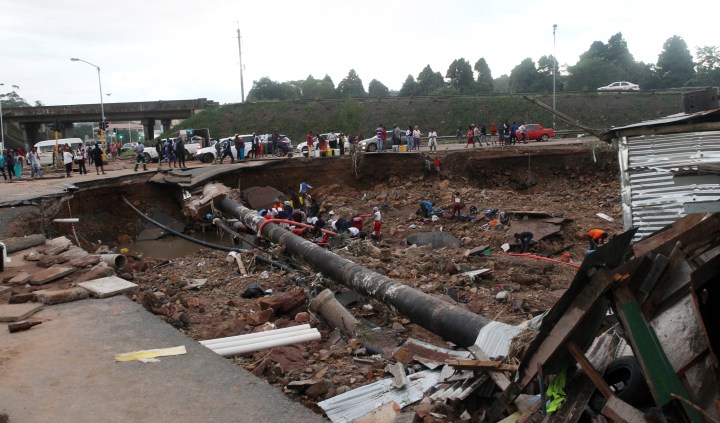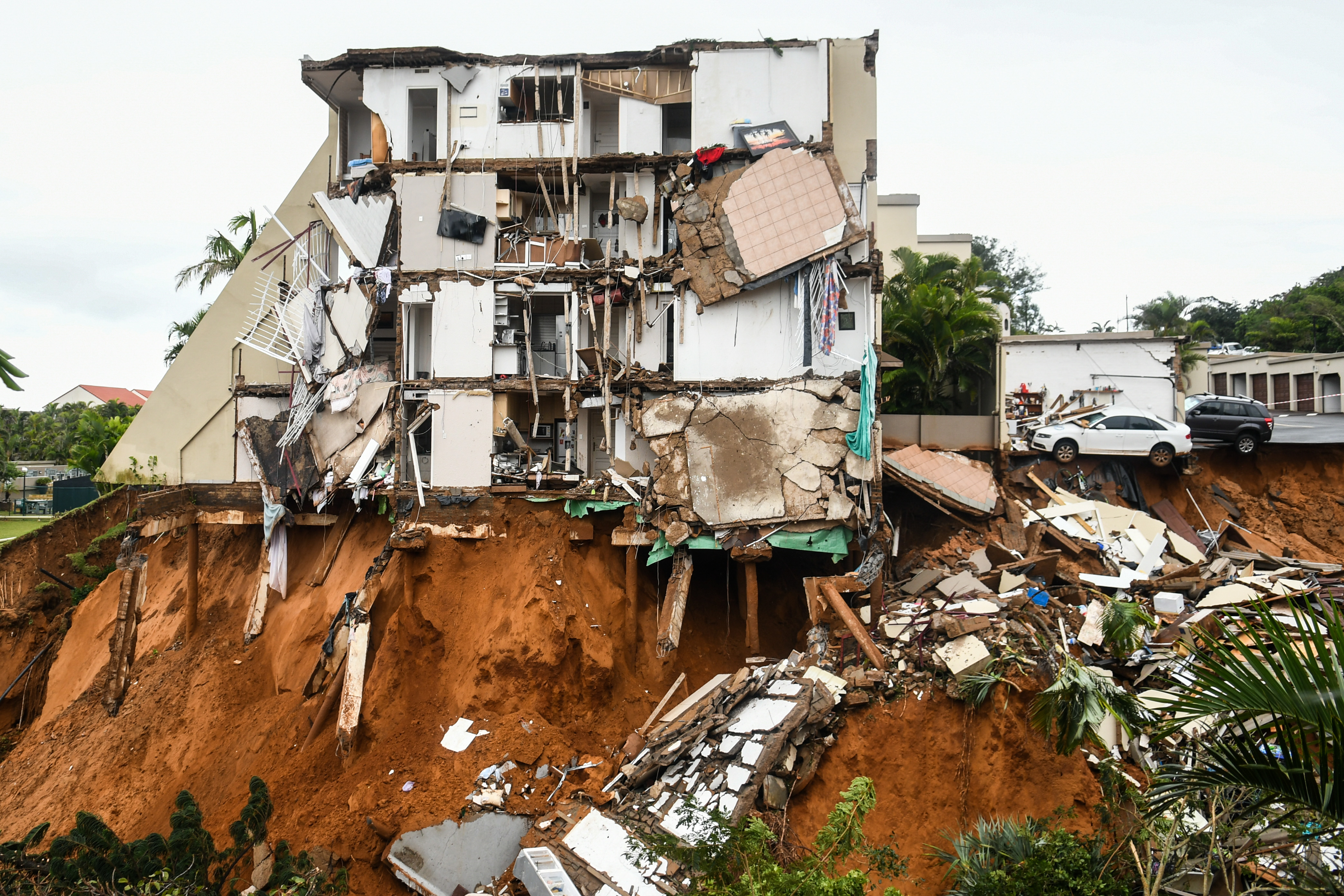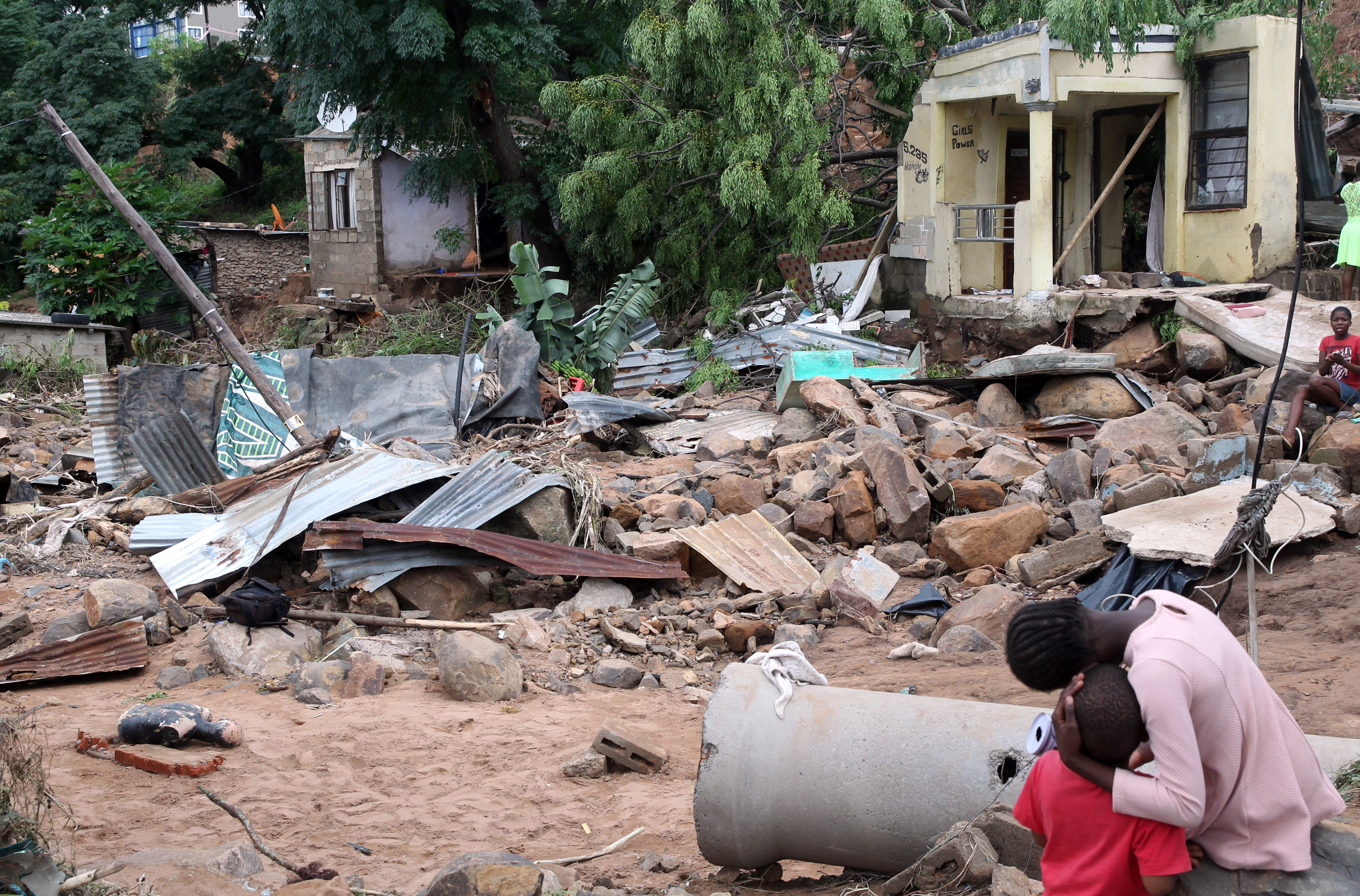DEFECTIVE PROPOSALS
Is SA’s Climate Change Bill good enough? It depends on who you ask

From a flawed definition of ‘just transition’ and a lack of human rights focus, to long time frames and conflicts of interest — these are the concerns organisations and individuals as varied as investigative journalists and academics had with the current version of South Africa’s climate change bill.
‘I just want to highlight the following; I think the reason all of us are here today, we all agree that climate change is transforming our lives in some alarming and unimaginable ways. We talk about drought, heatwaves, aggressive rains and the recent catastrophic floods that have been in KZN, and when you look at all these things, definitely they are climate-induced and it affects all of us as South Africans.”
So said Faith Muthambi, ANC MP and chairperson of the Forestry, Fisheries and Environment committee in her opening remarks at a recent meeting to hear oral submissions on South Africa’s Climate Change Bill.
The Climate Change Bill is pitched as being one of the tools South Africa’s government is expected to use to “enable the development of an effective climate change response and a long-term, just transition to a low-carbon and climate-resilient economy and society for South Africa in the context of sustainable development, and to provide for matters connected therewith”.
However, as was made abundantly clear at last week’s meeting, the Bill in its current form is not without perceived deficiencies and potential flaws.
Submissions
The AmaBhungane Centre for Investigative Journalism had a highly focused submission. At the outset, Susan Comrie, investigative journalist with the centre, said its goal was to ensure that transparency and access to information were baked into the Climate Change Bill.
Yuri Ramkissoon of the South African Human Rights Commission (SAHRC) took committee members through the commission’s submission. “The main and significant criticism of the Bill is the missed opportunity to firmly declare the human rights-centred philosophy to which it ought to be directed, including an expression of commitment to the founding values of the Constitution.”

Surfside flats in Umdloti, Durban on 22 May 2022. Roads, cars and buildings were washed away after heavy rain led to floods in the eThekwini region. (Photo: Gallo Images / Darren Stewart)
“Climate change is first and foremost a human rights issue. According to the United Nations Environment Programme, “anthropogenic climate change is the largest, most pervasive threat to the natural environment and human rights of our time”.
The SAHRC submission continued that “given this backdrop, it is concerning that the Bill is not framed from a human rights-based perspective nor on the prerogatives of the Constitution (which include the founding principles of the Bill of Rights — the rights to equality, dignity, and life).
“In failing to centre climate change as a human rights issue, the Bill confines climate change to science and the abstract, frequently viewed as a non-human-related concept, which is the antithesis of what the Bill ought to achieve.”
Visit Daily Maverick’s home page for more news, analysis and investigations
The submission from the Centre for Environmental Rights (CER) and Life After Coal campaign was presented by Brandon Abdinor, climate advocacy lawyer and Wandisa Pama, CER deputy director. In their submission, they said they were highly concerned that the bill, in its current form, “does not go far enough to address the severity, urgency and cross-cutting imperatives of the climate crisis…”
They said “there is also a limited window within which necessary greenhouse gas (GHG) emission reductions need to take place to avoid irreversible climate change with impacts that may well be beyond human adaptation capabilities. GHG emissions must be reduced by 43% within the next seven-and-a-half years.
“South Africa has a long way to go to ensure that we can sufficiently reduce GHG emissions and avoid more of the most devastating impacts of climate change on the country and its people, and also to ensure compliance with the Paris Agreement targets.
“If we do not take steps now to avoid these impacts (such as water scarcity, increased extreme weather events, and temperature increases) they will be severe for all of us, particularly the poor and marginalised communities of South Africa, as well as women and children. This will exacerbate the already prevalent environmental, gender and social injustice in South Africa. It is indeed these already marginalised communities most affected by the two recent flood events in KwaZulu-Natal.”
According to the submission, their primary and overarching concerns are that:
- The bill does not adequately centre the Constitution and the Bill of Rights;
- The bill exhibits a lack of urgency, with inadequate or absent timeframes;
- The bill does not contain effective, suitably ambitious and clear emission reduction targets;
- Transparency, disclosure and access to information are not adequately provided for;
- There is woefully insufficient provision for adequate emission reductions, including penalties, offences, enforcement and compliance;
- The bill must be strengthened in terms of capacitating and empowering organs of state to implement adequate and effective climate response measures;
- The bill is deficient in mainstreaming and prioritising climate response and sound climate governance across government; and
- The bill does not adequately address the responsibility of organs of state to consider climate response in decision-making.
Just transition
Prof Mike Muller of the Wits School of Governance and Dr Seán Muller of the Johannesburg Institute for Advanced Study also made a submission to the committee.
Among their main concerns is that the bill’s current definition of a “just transition” omits who should pay for the transition.
At present, “just transition” is defined in the bill as a shift towards a low-carbon, climate-resilient economy and society and ecologically sustainable economies and societies which contribute toward the creation of decent work for all, social inclusion and eradication of poverty — but they believe it should instead say that “just transition’’ means a shift towards a low-carbon, climate-resilient economy and society and ecologically sustainable economies and societies — the costs of which are equitably distributed across and within countries — which contribute toward the creation of decent work for all, social inclusion and the eradication of poverty.
Presidential Climate Commission
Another concern relates to the omission of requirements for members of the Presidential Climate Commission (PCC).
“Numerous experts who have informed the country’s strategy have material, undeclared conflicts of interest that call into question their suitability to advise on matters of public and national interest. It would be remiss of legislation to not address this,” they write.
They suggest an addition be added to the bill as it relates to the requirements for members of the PCC that reads, “… ensure that appointees publicly declare all potential conflicts, including funding from industry, domestic and foreign non-governmental organisations as well as foreign governments and multi-lateral agencies, and, where appropriate, exclude individuals whose conflicts may compromise their ability to prioritise the public and national interest in a credible manner.”

Children who were left homeless sit in front of what was their home after the April 2022 floods in Nhlungwane, Ntuzuma in KwaZulu-Natal. (Photo: Mandla Langa)
The Congress of South African Trade Unions (Cosatu), in its submission, was seemingly happier with the composition of the bill in its current form, stating that it welcomed the tabling of the bill at Parliament and that it supported its swift passage.
In its conclusion, it said that “the Climate Change Bill is a welcome and long overdue intervention. It is badly needed if we are to tackle one of the greatest existential threats to humanity, the environment and the planet.
“It compels government at all levels and entities as well as businesses to put in place the necessary assessments, plans and strategies. It provides a clear clarion call for all of us to work together to save the environment. It also provides a correct balance with the need to protect workers, vulnerable persons and communities.
“It recognises our real developmental and economic challenges. It provides an inclusive approach that gives space for organised labour, business and civil society to play their roles and to help guide the national response.
“Cosatu supports the Climate Change Bill and urges its speedy passage by Parliament.” OBP/DM




















 Become an Insider
Become an Insider
Comments - Please login in order to comment.